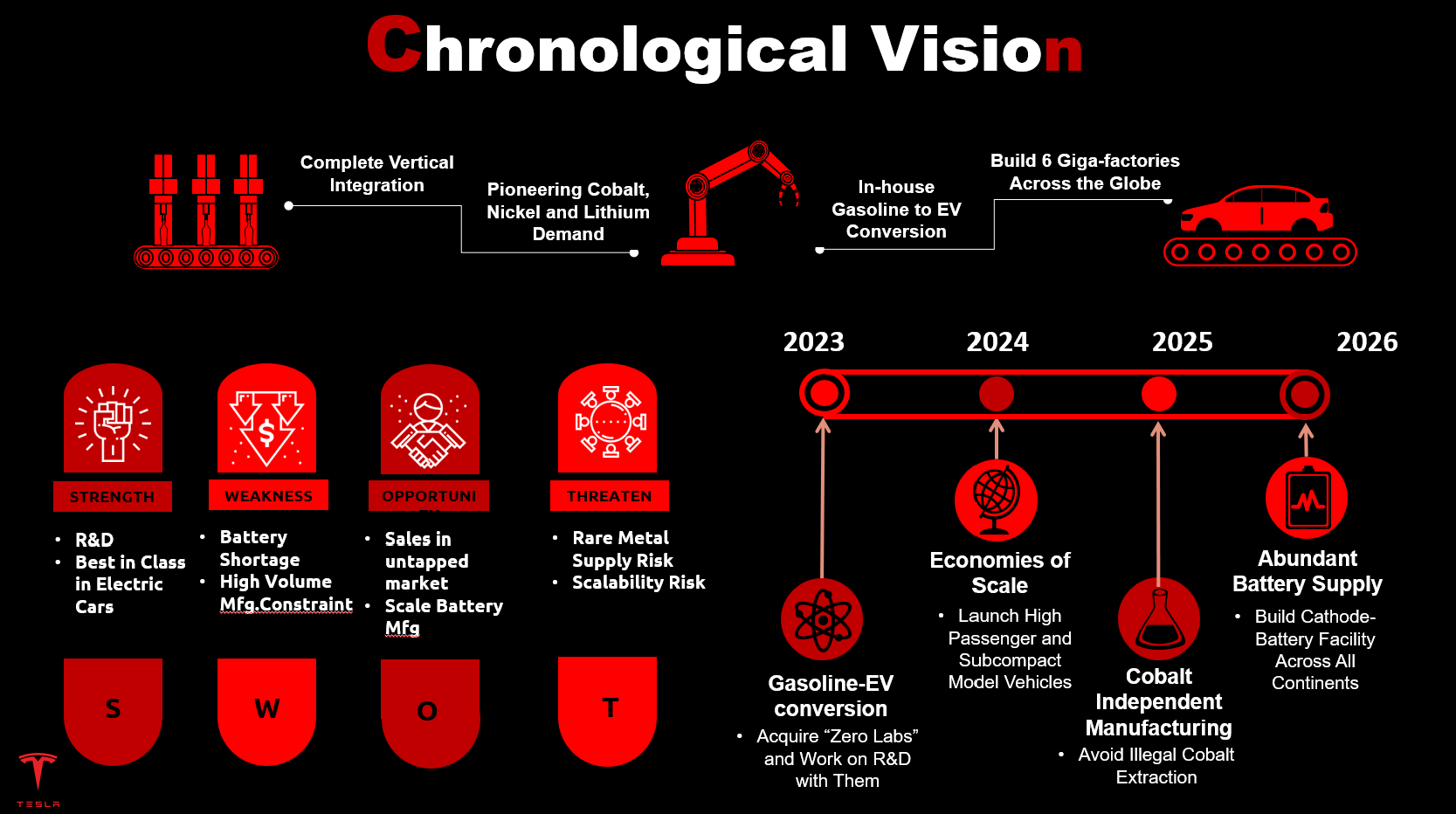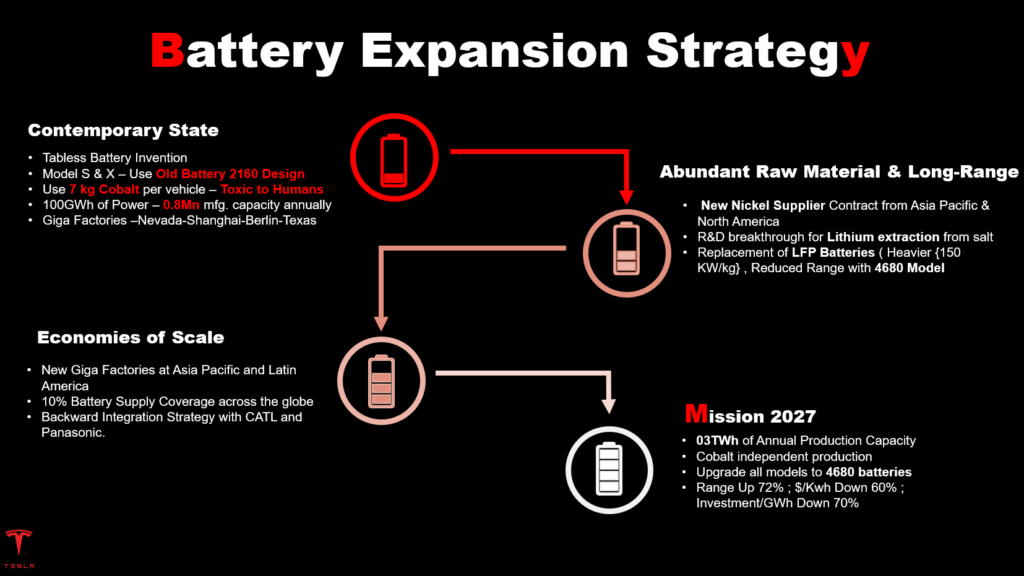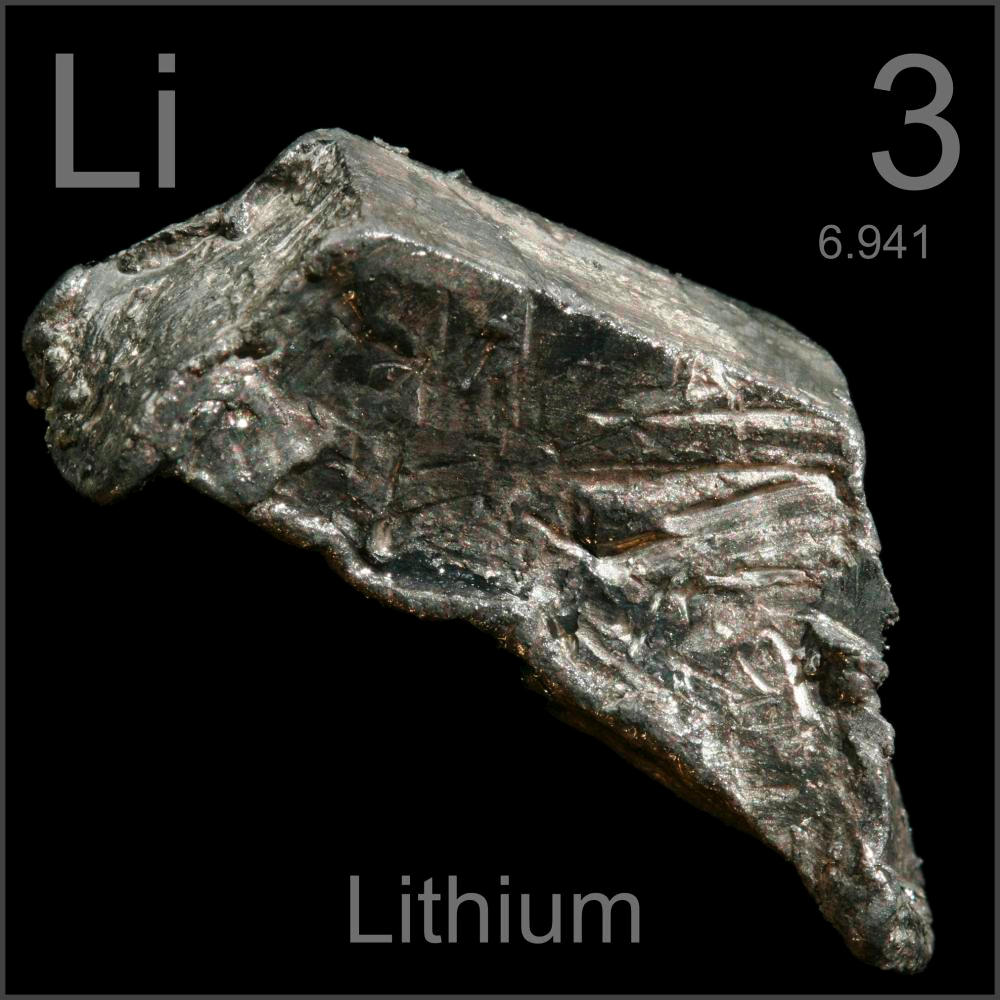2027 TESLA GROWTH STRATEGY PLAN
 ECONOMIES OF SCALE EXPANSION PLAN ACROSS GLOBE AT TESLA
ECONOMIES OF SCALE EXPANSION PLAN ACROSS GLOBE AT TESLA


EXECUTIVE SUMMARY
This Tesla presentation outlines the company’s plans to dramatically increase battery production and electric vehicle (EV) manufacturing capacity by 2027. The plan hinges on establishing a network of battery manufacturing facilities and converting existing factories to produce EVs. Tesla also plans to acquire existing companies and establish new facilities in the United States to secure critical battery materials and components. The company expects these efforts to enable it to produce 10 million EVs annually across various models and 3 terawatt-hours of battery storage capacity by 2027.
ABOUT
Hitting the Target: Economies of Scale, Effective Suppliers, Gasoline to EV
The presentation emphasizes the importance of economies of scale in achieving Tesla’s ambitious goals. The company plans to leverage its existing production infrastructure and expertise to rapidly scale up battery and EV production. Securing reliable and cost-effective supplies of battery materials, such as nickel and lithium, is also crucial to the plan. Tesla intends to establish partnerships with existing suppliers and potentially develop its own cobalt manufacturing capabilities to ensure a stable supply chain. Finally, the presentation highlights Tesla’s commitment to transitioning the automotive industry from gasoline-powered vehicles to EVs. The company views its increased battery production and EV manufacturing capacity as key drivers of this shift.





Year
2023
Client
ROSS SCHOOL
Services
CASE
Project
STRATEGY
Description
Key Strategies
- Battery Manufacturing: Establish a global network of battery manufacturing facilities, with a focus on facilities in Asia and the United States.
- EV Conversion: Convert existing Tesla factories to produce EVs and establish new EV production facilities, particularly in the United States.
- Securing Supplies: Partner with existing suppliers of battery materials and potentially develop in-house capabilities for cobalt manufacturing.
- Acquisitions: Acquire existing companies with expertise in battery production or EV manufacturing to accelerate expansion.
The presentation does explicitly address the challenges and risks associated with Tesla’s ambitious plans. Some potential challenges include:
- Securing Funding: The plan may require significant capital investment, which could be challenging in the current economic climate.
- Securing Raw Materials: Securing reliable and cost-effective supplies of battery materials, particularly lithium and cobalt, could be difficult.
- Execution Risk: Successfully executing such a large-scale and complex plan will require significant expertise and coordination.

